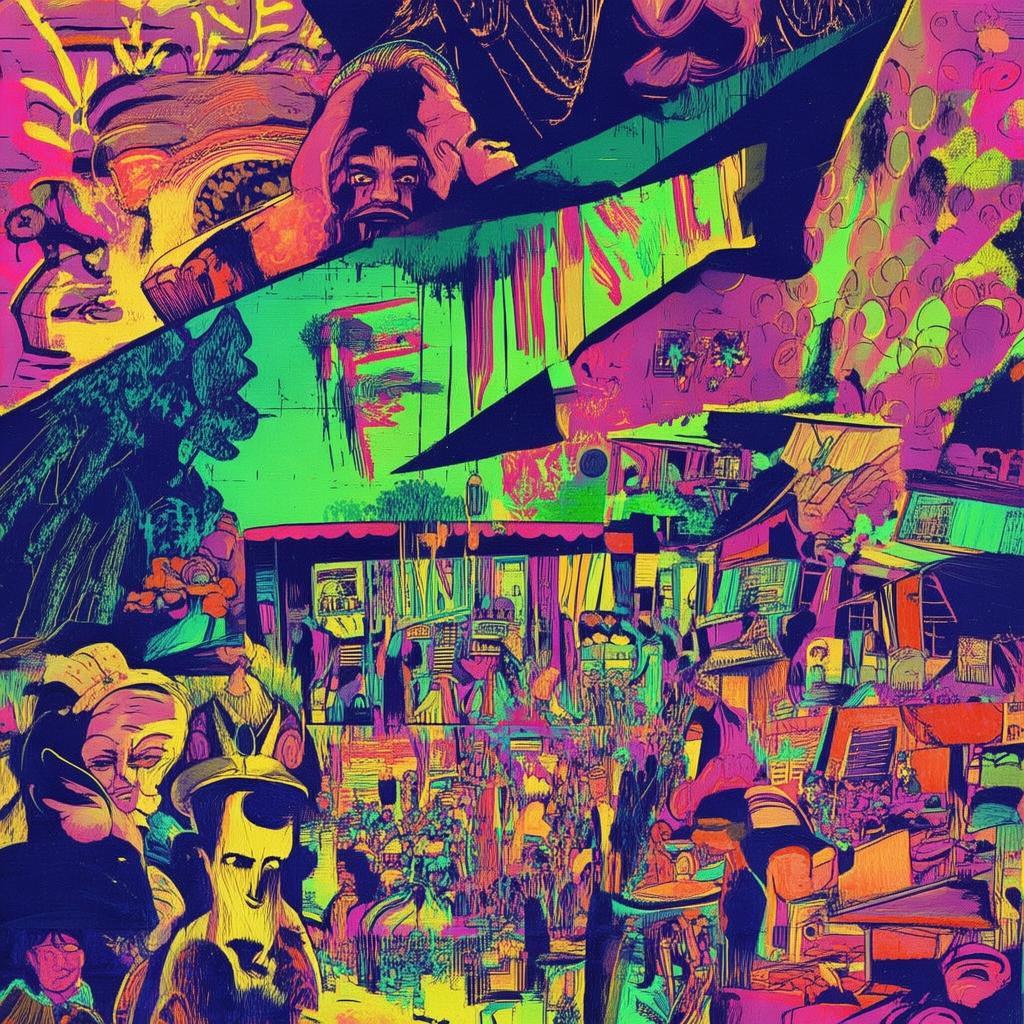The Lament of the Dike: Qu Yuan's Last Stand
The river was wide, its waters flowing with a solemn, rhythmic lullaby that carried the whispers of a bygone era. The Dike's Dilemma had been long resolved, but the legend of Qu Yuan, a man who chose the depths of the river over the betrayal of his people, lived on. The villagers of Chang'an whispered his name with reverence, a silent tribute to a man whose spirit had become as indelible as the patterns on the dragon robes he once wore.
The air was thick with the scent of rice dumplings, the sweet fragrance mingling with the distant call of vendors selling paper lanterns and colorful flags. It was the eve of the Dragon Boat Festival, a day set aside to remember Qu Yuan's final, desperate act. The people had come to celebrate his unwavering loyalty, a loyalty that had led to his untimely demise, but also to honor the bravery and the sacrifice.
As the moon ascended, casting its pale light over the tranquil river, a lone figure stepped out onto the embankment. He was Qu Yuan, the great statesman and poet, his long hair tied in a loose bun, his face etched with the lines of sorrow and resolve. His eyes held the reflection of the stars, a world of unspoken tales flickering in their depths.
"The dike is breached, the people suffer, and I have failed," he murmured to himself, the echo of his words bouncing off the water's edge. "Yet, I cannot stand by and watch them perish."
He reached into his robe, pulling out a scroll. It was a poem, his final testament to his people. He unfolded it with a trembling hand, the words written in elegant, flowing script. "The river claims you, oh river, but I shall not let you claim my honor," he recited, his voice steady despite the tremor in his voice.
The crowd gathered on the riverbank watched in hushed awe, their eyes wide with a mix of fear and respect. The festival had been planned to honor the day when Qu Yuan had taken his final stand, but this was not a day for celebration. It was a day for remembrance, a day for understanding the weight of loyalty and the cost of integrity.
As the first stroke of midnight approached, Qu Yuan turned back to the river, his eyes fixed on the vast expanse of water that had become his final resting place. "Farewell, my people. Farewell, my land. I go to you, that I may never again see my enemies triumphant," he declared, his voice growing stronger as he faced the inevitable.
With a final, sorrowful look at the world he was leaving behind, Qu Yuan stepped into the river. The crowd gasped, their hearts sinking with him as he vanished beneath the surface, a sacrifice for his country that would echo through the ages.

The people of Chang'an mourned his loss, but they also celebrated his courage. The Dragon Boat Festival was born that night, a festival of dragon boats racing across the river in search of Qu Yuan's body. It was a day to remember his love for his people, his unwavering commitment to his homeland, and the price of true loyalty.
Years passed, and the legend of Qu Yuan grew. The river, once a symbol of his despair, became a place of celebration and remembrance. The festival was a reminder of the power of unity, of the courage to stand against tyranny, and the eternal vigilance required to protect the values that define a nation.
The Dike's Dilemma had been resolved, but the story of Qu Yuan continued to inspire. The Dragon Boat Festival became a time for reflection, a time to honor the memory of a man who had given everything for his people, a time to renew the commitment to the ideals of justice, freedom, and integrity.
As the festival's festivities came to a close, the villagers returned to their homes, their hearts filled with a newfound sense of purpose. They had seen the spirit of Qu Yuan, a spirit that transcended time and remained as powerful as the river that had taken him from them.
The Lament of the Dike: Qu Yuan's Last Stand was a story of love, loss, and undying devotion. It was a tale that would be told for generations, a story that would inspire, challenge, and comfort, a story that would always remain as vital as the river that claimed Qu Yuan and the festival that was born in his memory.
✨ Original Statement ✨
All articles published on this website (including but not limited to text, images, videos, and other content) are original or authorized for reposting and are protected by relevant laws. Without the explicit written permission of this website, no individual or organization may copy, modify, repost, or use the content for commercial purposes.
If you need to quote or cooperate, please contact this site for authorization. We reserve the right to pursue legal responsibility for any unauthorized use.
Hereby declared.









